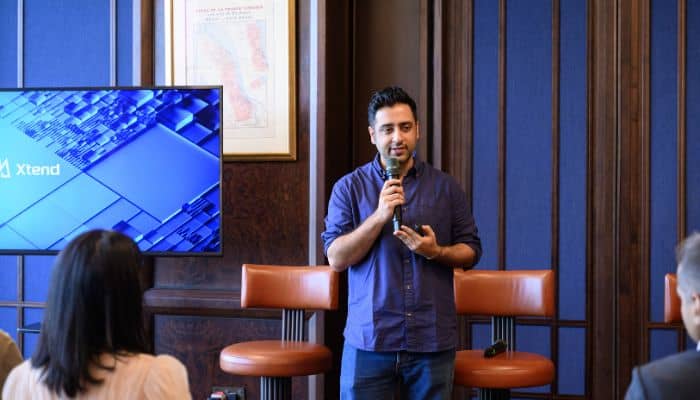In today’s dynamic economic climate, brands constantly navigate budget constraints within their digital marketing efforts. The digital advertising landscape is evolving rapidly, driven by trends such as AI optimisation, increased personalisation, and growing mobile usage. In this context, cost-efficiency has emerged as a critical factor that can significantly influence the success of marketing campaigns while ensuring financial sustainability.
The Transformation of Digital Advertising with AI
The digital advertising landscape is undergoing a paradigm shift with the integration of AI. AI has become indispensable for engaging, converting, and reaching consumers effectively. Insider Intelligence predicts that over 50% of digital ads will leverage AI and machine learning by 2024, creating seamless, personalised experiences across devices and formats.
AI enables advertisers to create hyper-personalised messages for each individual, enhancing relevance and engagement. They can continuously experiment with and optimise campaign elements such as captions, images, and calls to action, maximising impact. AI also helps advertisers predict the consumers most likely to react positively to tailored value propositions, enabling more targeted and effective campaigns. Furthermore, AI facilitates the automation and scaling of cross-channel advertising while preserving personalisation, resulting in significant cost savings and increased efficiency.
AI’s Impact on Cost-Efficient Mobile Advertising
AI is transforming the landscape of mobile advertising and making it more cost-efficient. Industry reports from eMarketer reveal that AI has led to a 27% decrease in customer acquisition costs. Furthermore, Epsilon’s research found that AI-driven Personalisation Images influenced 80% of consumers to purchase. By leveraging AI, brands can create more targeted and personalised ads, reducing waste and improving return on investment.
AI-powered mobile advertising allows brands to leverage buying intent signals to diversify their digital advertising strategies. By harnessing these signals, brands can gain insights into consumer behaviour, allowing them to target their advertising efforts more effectively and efficiently. This approach increases the likelihood of conversions and ensures brands get the most value from their advertising spend.
E-commerce businesses could benefit from using AI and machine learning to create personalised product recommendations, dynamic pricing, and targeted ads based on consumer behaviour, preferences, and purchase history. AI can also help e-commerce businesses improve customer service, loyalty, and retention by using chatbots, voice assistants, and sentiment analysis. Xtend’s Whitepaper showcases an Indonesian e-commerce platform.
AI-powered solutions activate dormant buyers and targeted micro-cohorts. An effective pacing strategy was developed. As a result, the platform has gained three times the amount of new buyers monthly, with click-through rate value that is four times higher than the industry average rate.
Personalisation, another key digital advertising landscape trend, influences consumer behaviour and advertiser strategy. AI-powered personalisation enables brands to deliver tailored messages to consumers, increasing engagement and conversion rates. By delivering content that resonates with consumers personally, brands can enhance their relationships with consumers and drive loyalty, all while optimising their advertising spend.
In 2024, advertisers are expected to embrace immersive and cohesive ad formats, creating a holistic advertising experience. The shift towards a more automated, data-centric, and integrated advertising experience is anticipated.
In conclusion, as digital advertising evolves, brands must prioritise cost-efficiency in their AI-powered mobile advertising strategies. By leveraging AI and machine learning, brands can deliver personalised and effective advertising campaigns that engage and convert consumers and ensure financial sustainability in an increasingly competitive market.

This article is written by Murali Dharan, Chief Commercial Officer at Xtend.
The insight is published as part of MARKETECH APAC’s thought leadership series under What’s NEXT 2024. What’s NEXT 2024 is a multi-platform industry initiative which features marketing and industry leaders in APAC sharing their marketing insights and predictions for the upcoming year.


